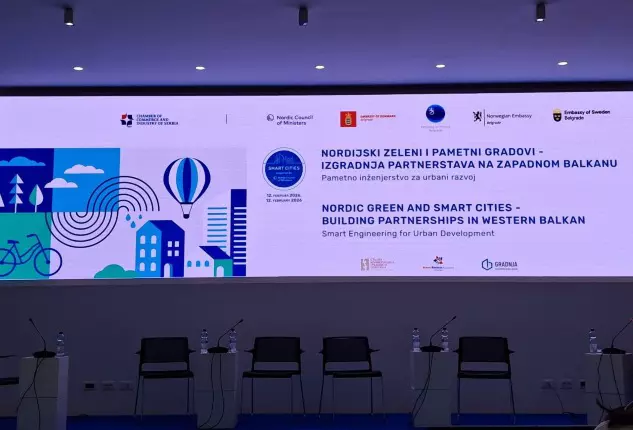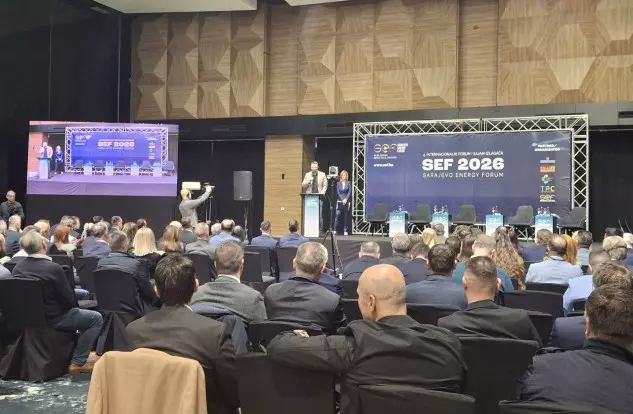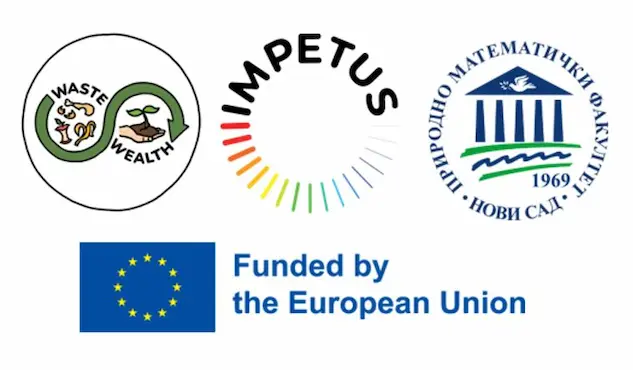The Sustainable Development Forum 2025 brought together diplomats, business leaders, and scholars under the theme “Competitiveness in Turbulent Times.” Against a backdrop of shifting global alliances, economic uncertainty, and climate urgency, the Forum explored how nations and industries can stay competitive while advancing sustainability and resilience. The event stood out not only for its high-level participants but also for its ability to turn complex global issues into actionable insights for the region and beyond.
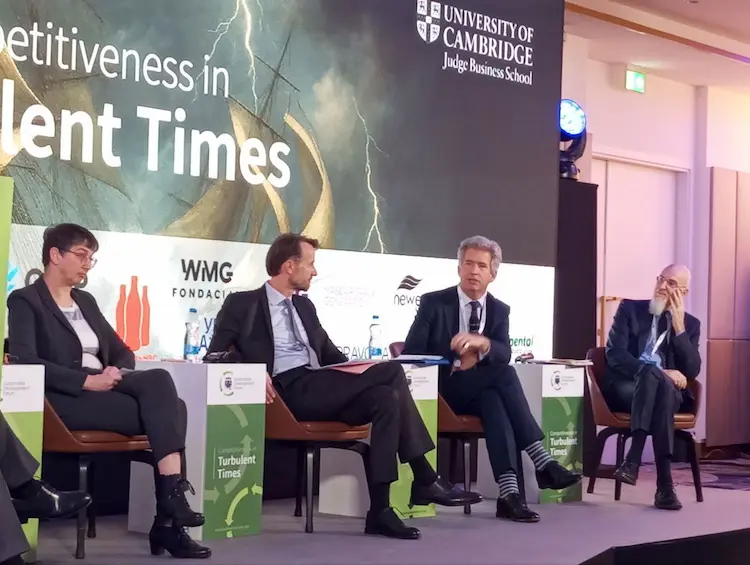
Diplomacy and strategic vision for a changing Europe
The opening day struck a remarkable balance, combining the perspectives of diplomats, business executives, and academia in a program that was as intellectually rich as it was diverse. The Ambassadors’ Insights session offered a nuanced view of Europe’s leadership amid global transformation, setting the stage for a broader discussion about competitiveness in an era of volatility.
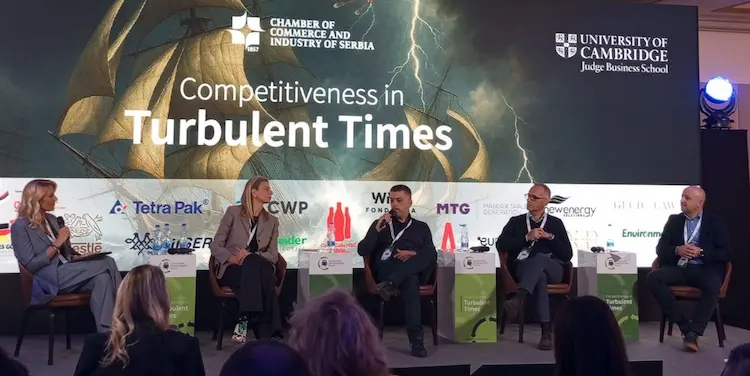
Academic and business leaders on sustainable competitiveness
Professors Khaled Soufani, Lucia Reisch, and Michael Pollitt from the University of Cambridge delivered outstanding keynote speeches that established an analytical and strategic tone for the day, bridging policy, innovation, and sustainability. From the business community, thought-provoking contributions came from Mihailo Vesovic (Serbian Chamber of Commerce and Industry), Richard Ali (Tetra Pak), Damien Sorrell (EIB), Tijana Koprivica (Delta Holding), Tamara Bullock (Tetra Pak), Jovan Bugarcic (AD IMLEK), Alin Visan (Maspex Romania), Nemanja Nenić (Delhaize), and Maja Turkovic (CWP Europe), each offering regional insight into global sustainability challenges.
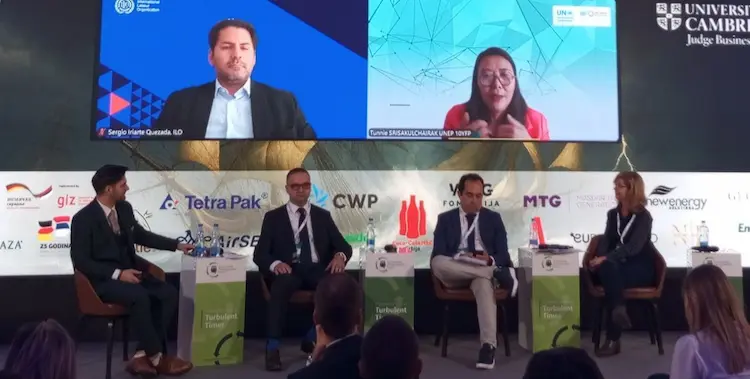
Finance, youth, and innovation for a sustainable future
The second day of the Sustainable Development Forum 2025 once again proved how thoughtfully balanced and forward-looking the programme is. It opened with a deep dive into how the banking sector can become a driver of circular and regenerative economies.
Speakers Aleksandra Vukosavljevic (EBRD), Marjana Bratic (Visa), Sandra Lazarevic (Banca Intesa), and Katarina Kulić (Deloitte) emphasized that finance today is not merely about managing risk, it is about investing in resilience and creating systems that enable sustainable growth.
Equally inspiring was the Green Jobs for Youth session, where Jorge Laguna-Celis (UNEP), Jovan Protic (ILO), and Tomislav Knezevic (GIZ) underlined that empowering young people with green skills is central to achieving a just transition. It was a powerful reminder that the future of sustainability depends on the opportunities created today.
Nordic excellence: lessons in trust and innovation
The Nordic Excellence panel brought valuable lessons from Northern Europe on trust, innovation, and cooperation, showing how the Nordic model continues to inspire with its blend of prosperity, social equity, and environmental leadership. Aldo Lele (IKEA), Bojana Milasinovic (TOMRA), Boban Joksic (BBD Group), Milan Jevremovic (ABB), and Iva Petrovic (Nordic Business Alliance in Serbia) shared how strong institutions and cross-sectoral trust underpin sustainable competitiveness.
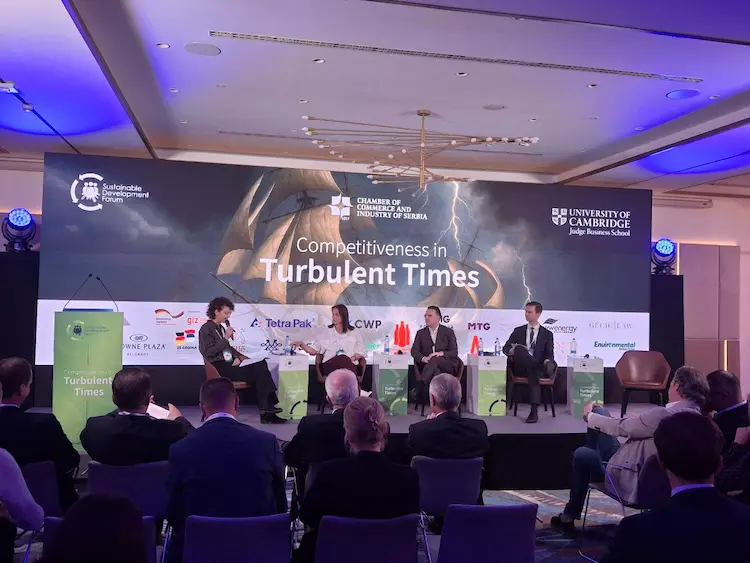
AI for a greener future: balancing innovation and responsibility
In the session AI for a Greener Future, moderated by Marija Novakovic (Data Science Conference), participants tackled one of the most complex questions of our time: how artificial intelligence can accelerate sustainability instead of adding new risks. The discussion highlighted both the transformative potential and ethical dilemmas of integrating AI into green transition strategies.
Beyond 2025: The future of sustainable competitiveness
The key themes of this year’s Forum, trade resilience, energy transition, technological innovation, and food security, reflected the multifaceted nature of global sustainability. As participants explored issues such as reshoring, energy security, AI ethics, and climate-smart agriculture, a unifying message emerged: competitiveness and sustainability are no longer in conflict but must evolve together.
The Sustainable Development Forum 2025 reaffirmed its position as one of the region’s leading platforms for dialogue between policymakers, academia, and the private sector. By linking economic strategy with environmental and social goals, it showcased a forward-looking vision for how nations can thrive in turbulent times.
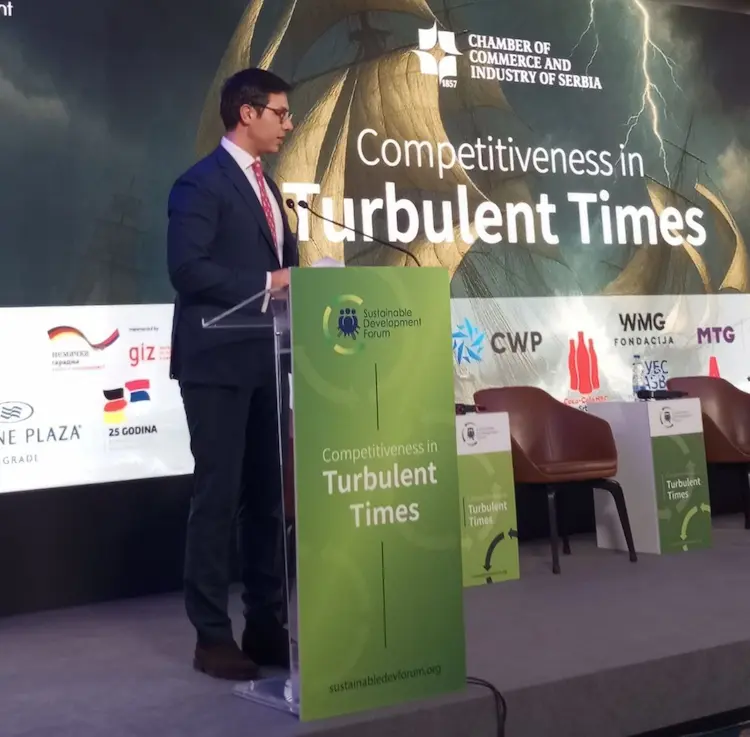
Read the interview with Kosta Živanović, President of Sustainable Development Forum 2025 here.
